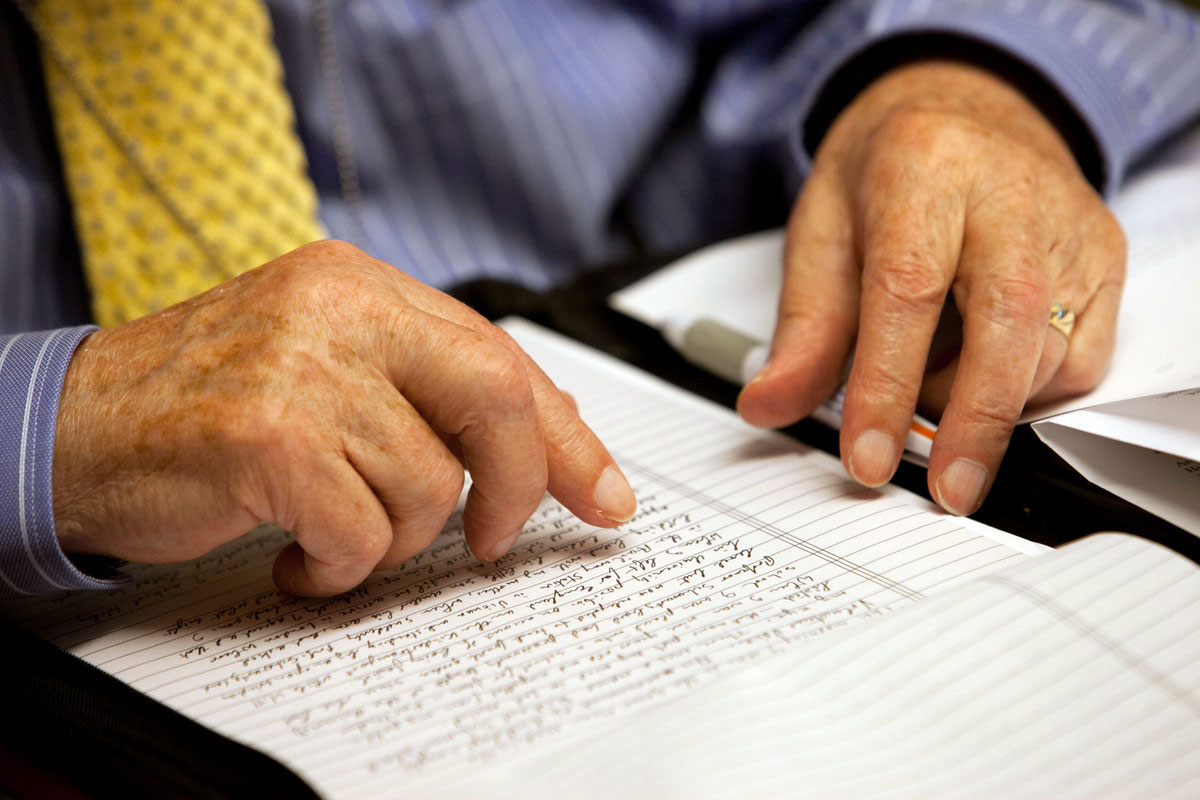Read reflections and testimonies written by Holocaust survivors in their own words.
Blog Home > parents
-
A Small Loss
November 1, 2017
In 1939, when World War II started, my first loss was my father, who was caught by the Russian occupying forces as he was trying to return home. He was sent to Siberia for 20 years’ hard labor. That was only the beginning, but it was a very big loss.
-
Refugees
November 1, 2017
It is 1946 in the Robert Taylor Displaced Persons camp (DP camp, later known also as Delayed Pilgrims camp). I am five years old. I share one room in a wooden barracks with my Dziadzio and Babcia. It is winter. Snowflakes float gently to land on icy-cold mud. Babcia has bundled me in every warm garment she can locate, whether it fits or not. I wear two pairs of Dziadzio’s socks on my hands. They cover my arms to the shoulders as well as my fingers. I sport a pair of someone’s leggings rolled up several times. My feet are bundled in rags. A knitted wool cap kept in place by a heavy babushka completes this outfit.
-
Sense of Being Jewish
November 1, 2016
From my earliest memories, I have always had a sense of being Jewish. My father, who had grown up as an Orthodox Jew, made sure we observed all the Jewish traditions. My mother, who wanted to please him, kept a kosher home. She prepared all the traditional dishes for the Sabbath, and we celebrated all the Jewish holidays with great enthusiasm. My brother and I accompanied my father to the synagogue almost every Saturday. It was there that I learned that it was important to pray to God and that God liked it when the Jewish men worshipped him.
-
Lying
November 1, 2016
I am not a good liar; my face gives me away. The best I can do is stay silent.
-
Reunion in Ebensee
November 1, 2016
It has been 15 years since I last visited the little town called Ebensee that is nestled high in the Austrian Alps and since I stood at the grave of my father and wept. I never knew my father because he, like my mother and two sisters, was taken from our home in Holland and deported when I was only nine months old. My mother survived, but my sisters and father did not. My sisters were killed in Auschwitz. And my father went from The Hague to Westerbork, to Vught, to Auschwitz, to Mauthausen, to Gusen, to Steyr, and finally to Ebensee. He survived the hardships of the camp but died two months later of what we were told was tuberculosis.
-
The Sinaasappel
November 1, 2016
I was in hiding for the first years of my life. There were five of us in hiding: my brother and I, my parents, and our friend, Tante Selma. My parents and Selma took very good care of my brother and me and gave us a lot of love. Since the adults never talked about our exceptional circumstances, we only knew what they told us, and we saw only what they showed us.
-
The Death Certificate That Saved Our Lives
November 1, 2016
Recently I heard someone saying that the Holocaust Museum, among many other things, is a grave for those who do not have a grave. I could immediately identify with the sentiment, because my father does not have a known grave that I am obliged to visit on his yahrzeit, the anniversary of a parent’s death in Jewish custom. As a matter of fact, we cannot even observe a proper yahrzeit because we do not know the date of his death.
-
Our Poor Shtetl is Burning!
November 1, 2015
After the Allied armies liberated Belgium and it was safe once again for us to go out in public, my parents started attending social events here and there in Brussels. Perhaps because they didn’t want to leave me home alone—I was around eight or nine years old—I often went with them to cafés where American musicians played jazz, balls where my parents danced, nightclubs where comedians told slightly off-color jokes in Yiddish, a movie theatre where we saw the movie The Dybbuk, and other social events attended by Jews who, like us, had lived through the war in hiding and who had not seen each other in years. Also in attendance were some of the very few Jews who had survived deportation to the Nazi camps. At the time, the word Holocaust hadn’t yet been coined. In Yiddish, people said: “Wir hoben dus mit gemacht” (We went through that).
-
My Last Vacation
November 1, 2015
Every visit we made to the country of our birth, Poland, ended the same way. We always said, “We will probably not be coming back again.” There seemed no reason for another visit since whatever remnants of my family that survived the Holocaust did not live in Poland any more.
-
The Pineapple Voyage
November 1, 2013
The ship, the Serpa Pinto, was Portuguese. It looked a lot like the St. Louis, which is prominently exhibited on the fourth floor of the Museum. It was painted black with red lettering on its side and loomed above us. My brother Joe and I were among the 56 children who ascended the gangplank on September 10, 1941. We had arrived in Lisbon after traveling by train from Brout Vernet to Marseilles, over the Pyrenees, through Spain, and then to Portugal. The Quakers and the Hebrew Immigrant Aid Society helped all of us, from France and Germany, obtain passports and tickets to come to America. Only six of these children had parents who were already in the United States. My brother and I were two of those six.


